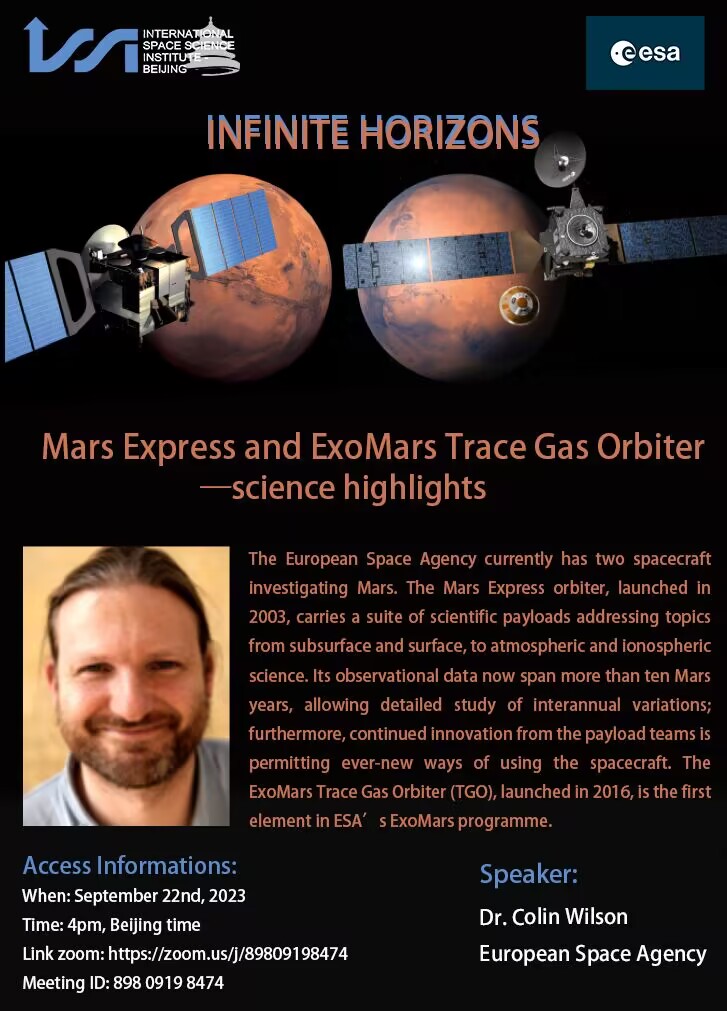Infinite Horizons: Sept. 22 Dr. Colin Wilson: Mars Express and ExoMars Trace Gas Orbiter–science highlights
Speaker: Dr. Colin Wilson (European Space Agency)
Sept. 22, 2023
4pm, Beijing time
Watch it on Zoom

The European Space Agency currently has two spacecraft investigating Mars. The Mars Express orbiter, launched in 2003, carries a suite of scientific payloads addressing topics from subsurface and surface, to atmospheric and ionospheric science. Its observational data now span more than ten Mars years, allowing detailed study of interannual variations; furthermore, continued innovation from the payload teams is permitting ever-new ways of using the spacecraft. The ExoMars Trace Gas Orbiter (TGO), launched in 2016, is the first element in ESA’s ExoMars programme. It carries two spectrometer suites designed to use solar occultation to measure trace gas abundance profiles to exquisite sensitivity – approaching 10s of parts per trillion in the case of methane. TGO carries a colour imaging camera capable of obtaining multispectral stereo surface imagery at 5 m spatial resolution. A neutron detector allows mapping of hydrogen abundance in the near-subsurface, a proxy for water ice, and is complemented by a radiation dosimeter characterizing space weather risks for future exploration missions, whether human or robotic. Both MEX and TGO carried probe/landers: Beagle 2 in the case of MEx, and Schiaparelli in the case of TGO. Both of these failed before being able to carry out their surface missions, but their development provided valuable experience and technologies for future missions. This presentation will review the achievements of these missions, with a focus on recent investigations.
Meeting ID: 898 0919 8474
About the Speaker
Colin Wilson is the European Space Agency’s Project Scientist for the Mars Express and ExoMars Trace Gas Orbiters, working at the European Space Research and Technology Centre (ESTEC) in the Netherlands. Previously he was a Senior Research Fellow at the University of Oxford’s Physics department, where he also completed his doctoral research. His scientific background is in atmospheric science, in particular of Mars and Venus. He designed wind sensors for both the Beagle 2 and Schiaparelli Mars landers, studied Venus atmospheric properties using Venus Express, and developed instrument and mission proposals for a number of Mars and Venus mission concepts.
